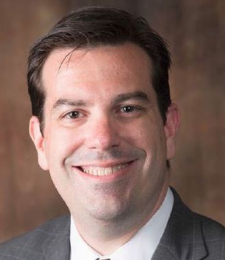I’m thrilled to announce that Bedard Law Group is the new sponsor for the Compliance Digest. Bedard Law Group, P.C. – Compliance Support – Defense Litigation – Nationwide Complaint Management – Turnkey Speech Analytics. And Our New BLG360 Program – Your Low Monthly Retainer Compliance Solution. Visit www.bedardlawgroup.com, email John H. Bedard, Jr., or call (678) 253-1871.

Every week, AccountsRecovery.net brings you the most important news in the industry. But, with compliance-related articles, context is king. That’s why the brightest and most knowledgable compliance experts are sought to offer their perspectives and insights into the most important news of the day. Read on to hear what the experts have to say this week.
Judge Partially Grants MSJ in TCPA Case Over Text Messages Sent, But Not Received by Decade-Old Phone
A District Court judge in California has partially granted a defendant’s motion for summary judgment after it was sued for allegedly violating the Telephone Consumer Protection Act even though the plaintiff never actually received the text message in question. More details here.

WHAT THIS MEANS, FROM NICOLE STRICKLER OF MESSER STRICKLER: A California judge handed a partial victory to defendants Vehicle Agency and AT&T after they allegedly sent more than 111 text messages to the plaintiff’s cellular phone. The plaintiff filed a claim alleging a violation of the Telephone Consumer Protection Act when he was repeatedly sent SMS messages reminding him of his upcoming AT&T service appointment. However, the court held that because the plaintiff couldn’t prove that he had actually received the original MMS message, he couldn’t conclusively establish liability under the Act. The court determined that a genuine issue of material fact remained as to whether the defendant Vehicle was responsible for sending the other 111 SMS messages.
Appeals Court Vacates Award in FDCPA Class Action Over Garnishments
The Sixth Circuit Court of Appeals has vacated a lower court’s ruling in favor of plaintiffs in a class action who were awarded $3,662 in damages and their attorneys who were awarded $180,000 after the court ruled the defendant violated the Fair Debt Collection Practices Act by including the costs of previous failed garnishments on each new request. More details here.

WHAT THIS MEANS, FROM DENNIS BARTON OF THE BARTON LAW GROUP: In Van Hoven v. Buckles & Buckles, the Sixth Circuit reversed and remanded a district court’s certification of a case and its finding that a debt collection law firm violated the FDCPA. Van Hoven alleged the law firm included court costs creditors incurred from filing and serving garnishments as part of the total owed in the garnishments. Those costs included the costs related to garnishments served on garnishees employing the judgment-debtors (“successful garnishments“) and the costs related to garnishments served on garnishees that no longer employed the judgment-debtors (“unsuccessful garnishments“).
This opinion largely turned on how the Sixth Circuit interpreted specific garnishment laws of Michigan. For the purposes of extracting the most important and broader takeaways, we should focus on (1) the court’s decision on the issue of whether an incorrect representation of the law by a debt collection attorney always violations the FDCPA and (2) the court’s view of standing.
The court held misrepresentation of the law is an FDCPA violation only when a lawyer objectively misstates the law such as “misquoting a case, relying on a statute no longer in existence, or invoking an overruled decision[.]” Then the misstatement would be false, deceptive, and misleading. In addition, the statement of incorrect law would need to be material because that is an element of an FDCPA violation (relating to false statements). That means materiality is an element consumer-plaintiffs have the burden to prove.
The Sixth Circuit ultimately reversed and instructed the district court to allow court costs related to successful garnishments but not unsuccessful one. In doing so it also instructed the district court to modify or decertify the class that included debts whose costs were properly charged. Most significantly, without referencing Spokeo, the court said the class should also only consist of those judgment-debtors who paid too much. In other words, if someone was incorrectly charged $50 in court costs, but still owed $51 or more, that person would not be a class member because they had not yet incurred damages needed to have standing to be a class member.
The ruling implies that a judgment for a specific amount does not give rise to standing absent a fiduciary loss (meaning that even the threat of an excess amount being collected in the future absent the suit is insufficient – with which other courts may disagree). With courts still disagreeing on when and to what extent Spokeo applies to FDCPA claims, this is a great decision upon which to rely from a circuit court when employing the Spokeo/standing defense.
THE COMPLIANCE DIGEST IS SPONSORED BY:

Judge Grants MSJ For Defendant After Time-Zone Change Proves Dispute Was Not Faxed When Plaintiff Says It Was
A District Court judge in Illinois has granted a defendant’s motion for summary judgment after it was sued for violating the Fair Debt Collection Practices Act because it did not mark an account as disputed after the plaintiff allegedly faxed her dispute during the validation period. More details here.

WHAT THIS MEANS, FROM MITCH WILLIAMSON OF BARRON & NEWBURGER: The underlying claim was relatively clear. After obtaining a judgment against the debtor (who happened to be an attorney) Buckles filed several writs of garnishment trying to collect the judgment. As part of each garnishment Buckles asked for both the $15 filling fee of the current writ, and also included the $15 spent for each prior unsuccessful garnishment. There were four in all. The questions raised by the complaint were (a) could they include the current cost of the garnishment and (b) could they include the prior costs. The Sixth Circuit acknowledged that Michigan law was unclear as to both questions.
By way of background, this case dates back to 2016 when the District Court for the Western District of Michigan first entered summary judgment on the merits in favor of the plaintiff. Subsequently the parties litigated the issue of class certification and only after class certification was granted and there was a subsequent motion for costs and attorney fees was this appeal filed. Six orders, dating from 2014 through the final judgment were appealed. The initial Order (6/5/14) denied Buckles’ request that the Michigan State Supreme Court clarify whether the plain language of the garnishment statue and the state court’s form calling for the “The total amount of post judgment costs accrued to date” were indications that they were correct to include that fee in the requested writ. A review of the Order denying the Buckles motion provided a harbinger of what was to come. “As this Court has previously noted: The State Supreme Court rarely accepts certified questions from the federal courts, and almost never accepts them from the district court.” (D.E. 27) So why even try? Nothing like fair and impartial treatment. [The Buckles was one of three consolidated cases seeking Michigan Supreme Court review.] As discussed below the Michigan State Supreme Court did in fact review the issue. Arguably this case could have been resolved sooner and with less time and expense had the issue been certified. A point not lost on the Sixth Circuit in its decision.
Next was the Order on 3/28/16 denying Buckles motion for summary judgement and granting Plaintiffs motion for summary judgment granted only partially. While the Court found Buckles violated the FDCPA, it stated that “the record is not developed enough to determine whether the bona fide error defense of the FDCPA is applicable in this case.” (D.E.75) The judgement also left open the issue of damages. Next came the Order granting class certification on 10/31/16. (D.E. 101) But the story didn’t end there.
A trial date was set to determine both whether the bona fide error (“BFE”) defense would have effect and damages. The plaintiff filed a motion in limine seeking to bar Buckles from introducing additional evidence or argument regarding the claim of BFE beyond what had previously been disclosed at the inception of the litigation. The plaintiff argued that a mistake of state law was not entitled to the BFE defense and the Court agreed. The plaintiff further argued that the procedures Buckles had already disclosed “do not amount to procedures reasonably adapted to avoid the violations that the Court has already found as a matter of law.” The Court agreed and ruled that Buckles could not raise the BFE defense. Order dated 1/9/18 (D.E. 152) What followed, in October 2018, was a ruling that there were no issues remaining for trial and shortly thereafter the Court entered an Order for class damages in the amount of $3,661.68. Damages were based on a spreadsheet prepared by Buckles showing amounts and fees collected. Finally came the litigation over attorney fees, which consummated in an Order on 1/7/19 granting the plaintiff’s counsel roughly $180,000 in fees. And then came the appeal.
6th CIRCUIT REVIEW OF THE ISSUES (2020 U.S. App. LEXIS 1483)
The Rule [Michigan’s garnishment statute in 2014 at the time the garnishment was filed] by its words appeared to support a creditor’s request for the costs of each garnishment. The Rule permitted creditors to seek the “total” amount of “the post judgment costs,” suggesting that the drafters of the Rule—the Michigan Supreme [*17] Court—meant to permit the costs of each request. The filing fee for each garnishment is a cost, all can agree. And it’s hard to call something a “total” set of costs that excludes some of them. The phrase “costs accrued to date” points in the same direction. The filing fee of each request occurs on the date of the garnishment request and thus counts as a cost “accrued to date”—the date of the request” Id. at *16-17. The Michigan Supreme Court subsequently amended the rule to clarify that creditors could include the current costs in their garnishment requests, commenting that the rule permits recovery of “the total amount of the post judgment costs accrued to date, which may include the costs associated with filing the current writ of garnishment.” Id. at *18.
So as to question number one, including the costs of the current writ in the writ Buckles was right and the District Court was wrong. However, the question of whether the prior writ filing fees could also be included was, in the words of the court, “another matter.” The court explained,
The decision of Buckles & Buckles to include the cost of prior failed garnishments is another matter. In these instances, the law firm included the costs of garnishments that failed because the garnishee did not owe the debtor any money, did not hold any property subject to garnishment, or was not the debtor’s employer. MCR 3.101(R)(2) [**14] (2014). At the time of this lawsuit, the Rules made clear that creditors were “not entitled to recover the costs of [the] garnishment” when that happened. Id. Amendments at 6. That makes including them a false representation under the Act.
Id. at *23. But that’s not the end of the story.
Distinguishing the argument that including the filing fees in the writ could have been due to a mistake of law, the court acknowledged that Buckles position regarding the inclusion of prior fees was that it was a clerical mistake. Buckles had proffered an affidavit from Mike Buckles that it had procedures in place to back out those costs in subsequent writs.
But Buckles & Buckles never had a chance to prove that its procedure sufficed given the way the case proceeded below. It deserves that chance. We thus remand the case to allow the [**15] district court to determine whether Buckles & Buckles made “bona fide” mistakes of fact in including certain costs of prior failed garnishments and whether its procedure for preventing such mistakes suffices. To the extent the record needs development on this issue, the parties are free to seek additional discovery.
Id. at 15-16. The Court then went on to suggest that in the event Buckles did not prevail on its BFE defense as to those writs where costs of prior writs were included, the class size needed to be re-evaluated and could very well lead to a smaller class or even decertifying of the class. And the court did not stop there, stating “[b]ecause the merits remain an open question, it’s likewise an open question whether the plaintiffs are entitled to damages and whether their attorneys are entitled to fees.” Id. at 26.
The above recital is a barebones attempt to explain what happened. What is the simple takeaway? You cannot review your processes and procedures too often. Just like your car, your HVAC and other systems needed to be maintained and tuned on a regular basis, so do your processes and procedures to insure they are running they way you expect. There is a treasure trove of good language in this decision and it needs to be read several times. Each time you read it you will see something you may not have seen on the prior reading. The dissent is just downright scary.
One last thought/question? Could Buckles have petitioned the state court for an opinion if it was unclear as to the meaning of the statute? (I am not implying they were wrong – just raising the question for future reference.) Readers, what do you think?
Lawyer Defending CFPB Before Supreme Court Calls Seila Law’s Case ‘Remarkably Weak’
The lawyer picked to defend the leadership structure of the Consumer Financial Protection Bureau before the Supreme Court is showing that he has completely finished all of the Kool-Aid and will not be soft-playing his arguments. More details here.

WHAT THIS MEANS, FROM VIRGINIA BELL FLYNN OF TROUTMAN SANDERS: In Seila Law LLC v. Consumer Financial Protection Bureau, the Supreme Court is considering a constitutional challenge to the leadership structure of the Consumer Financial Protection Bureau (CFPB). Specifically, the petitioner presents the following question: Whether the vesting of substantial executive authority in the CFPB, an independent agency led by a single director, violates the separation of powers. In a Jan. 15 brief submitted to the Court by counsel for the CFPB, the CFPB argues that decisions made by Kathleen Kraninger since she took over as director of the agency prove there is no reason to “invalidate an Act of Congress,” noting that the theory of the unitary executive appear alive and well. CFPB also maintains that the dispute is not just unripe, but entirely theoretical, and the case does not present a proper occasion for the Supreme Court to resolve the question the petitioner asks it decide.
However, the issue that is before the Court and what will likely be the focus is whether the removal restrictions placed on the president are constitutional. Don’t forget, the CFPB is headed by a single director, whom the president may remove only for “inefficiency, neglect of duty, or malfeasance in office.” 12 U.S.C. Section 5491(c)(3)). Many expect the Supreme Court to hold that the removal restriction is unconstitutional and follow the Court’s precedent in Myers v US, where it held that the presidents have full power to remove the heads of purely executive officers. 272 U.S. 52 (1925).
Judge Denies Stay in TCPA Case Over Whether ATDS Was Used to Make Collection Calls
A District Court judge in Virginia has denied a defendant’s motion to stay proceedings after it was sued for violating the Telephone Consumer Protection Act by allegedly making debt collection calls using an automated telephone dialing system after the plaintiff had revoked consent to be contacted. The defendant was seeking a stay pending the release of either an updated definition of an ATDS from the Federal Communications Commission or a decision from the Supreme Court to hear arguments in an ATDS case. More details here.

WHAT THIS MEANS, FROM DAVID KAMINSKI OF CARLSON & MESSER: It’s been nearly two years since the D.C. Circuit Court of Appeals issued its landmark decision in ACA International v. FCC, 885 F.3d 687 (D.C. Cir. 2018), and we still do not have a coherent and generally-accepted ATDS (automatic telephone dialing system) definition under the TCPA in most parts of the country. The extremely consumer-friendly view taken by the Ninth Circuit in Marks v. Crunch San Diego, LLC, 904 F.3d 1041 (9th Cir. 2018) is a notable exception. Despite the continued uncertainty, as stated in Stanley v. Capital One, Courts have been less likely to stay TCPA lawsuits since ACA International. Courts generally do not like to clog their dockets by granting a stay request, especially when they cannot see an end to the case in sight.
Here, Capital One argued that a stay was warranted in Stanley because (a) the FCC has not yet issued new regulations regarding the ATDS definition, and (b) the Supreme Court might address the ATDS definition if it grants certiorari in Duguid v. Facebook, Inc., 926 F.3d 1146 (9th Cir. 2019). In accordance with the post-ACA trend, the Stanley Court denied Capital One’s motion on the grounds that any stay pending an FCC ruling would be too indefinite and not necessary, and because it is not yet known if the Supreme Court will grant certiorari in the Duguid matter. However, as a silver lining, the Court granted Capital One the right to file another motion to stay the case if the Supreme Court grants the petition for certiorari in Duguid. The saga surrounding the ATDS definition continues.
As far as when the FCC will issue its Notice of Proposed Rulemaking wherein industry was hopeful for sensible TCPA rules and an autodialer definition business could live with, we are informed that such ruling may take some time. Nothing is immediately on the horizon. Call blocking and caller ID mislabeling, other important issues, are taking front and center stage. Stay tuned!!!!
Sixth Circuit Upholds MSJ For Defense in FDCPA Case Over Disputed Debt
The Court of Appeals for the Sixth Circuit has upheld a summary judgment ruling in favor of a defendant that was sued for allegedly violating the Fair Debt Collection Practices Act because it did not provide the proper documentation to verify an account that had been disputed and that was accused of fabricating information that was sent to the plaintiff to confirm the account in question was his. More details here.

WHAT THIS MEANS, FROM KELLY KNEPPER-STEPHENS OF TRUEACCORD: Collection agencies regularly receive multiple disputes from consumers who are not satisfied with the validation documentation because they do not receive the original signed application (as often with credit card debt the application is no longer available). In the recent case of Cooper v. Portfolio Recovery Associates, the Sixth Circuit approved the dismissal of the case by the lower court finding no evidence that the documents provided in response to the three disputes violated the FDCPA. The agency provided three monthly credit card statements (including the last statement prior to charge-off) and a letter detailing the account information in response to the first two disputes. The agency also provided two letters stating that they would not conduct a new dispute investigation because the second and third dispute did not include any new facts or new information that would form the basis for a new investigation (the collector also updated the credit bureau tradeline as disputed after the first dispute). The consumer had requested the original contract with his signature, receipts and one year of credit card statements.
The consumer’s main argument surrounded the fact that his name and address did not match the information on the account statements – so the statements were fraudulent. Of note, the consumer did not ever fill out the identity theft affidavit provided in response to the first dispute or otherwise convey to the collector that the statements had incorrect information (until he filed the lawsuit). In defending the lawsuit, the agency provided two years of statements with an affidavit from the originating bank establishing the validity of the statements and information that the consumer updated the address to the address appearing on the provided statements. While the court found the fact that the consumer’s actual information did not match the information on the statements to be concerning, there was no evidence that the collector fabricated or falsified the documents especially in light of the declaration of accuracy provided by the bank (who created the statements). So the court affirmed the dismissal of the lower court.
Perhaps this case could have been avoided had the consumer communicated more with the debt collector explaining the inconsistency in his address and name (he writes his name William S. Cooper II – not Cooper 2 – as it appeared on the statements). Then the agency could have conducted an identity theft investigation.
Lowball Restitution Order With Collector Leads Senate Dems To Call For Investigation into CFPB
Using a recent settlement with a debt collector as an example of how the Consumer Financial Protection Bureau has created a “perverse incentive for companies to violate the law,” a group of 15 Senators to call for an investigation into the CFPB’s restitution penalties levied against companies found to have engaged in illegal activities. More details here.

WHAT THIS MEANS, FROM JUDD PEAK OF FROST-ARNETT: The letters from the senators was sent to the Inspector General of the Federal Reserve Board, Mark Bialek. This was the necessary recipient, since the CFPB was designed to run independently from both Congress and the Executive Branch. The issuance of the letter is not particularly surprising. Even since the resignation of Richard Cordray in 2017 and the appointment of his replacement, Kathy Kraninger, in 2018, the CFPB has narrowed the scope of its supervisory and enforcement prowess. Indeed, Director Kraninger specifically noted that the CFPB would cease to create rules through civil enforcement action, and instead focus on the formal rulemaking process and working with stakeholders. “[R]ules are general standards, [and] are not best articulated on a case-by-case basis through enforcement actions.” (Statement at the Bipartisan Policy Center, Apr. 17, 2019.)
Legislators with a pro-consumer slant have protested the migration of the CFPB away from rampant enforcement actions. This letter is the latest representation of this line of thought. The signatories to the letter included three current (and one former) Presidential candidates, so to assume there are no politics at play is short-sighted. (As an interesting aside, CFPB Director Kraninger once worked as an intern for one of the letter signatories, Sen. Sherrod Brown.)
I’m thrilled to announce that Bedard Law Group is the new sponsor for the Compliance Digest. Bedard Law Group, P.C. – Compliance Support – Defense Litigation – Nationwide Complaint Management – Turnkey Speech Analytics. And Our New BLG360 Program – Your Low Monthly Retainer Compliance Solution. Visit www.bedardlawgroup.com, email John H. Bedard, Jr., or call (678) 253-1871.









